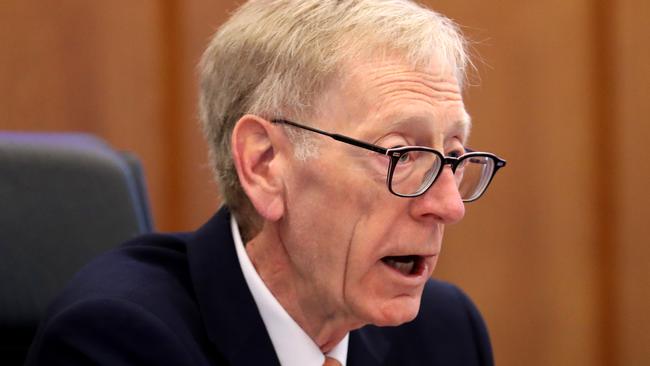Banking royal commission: Mortgage lending gets clean-up
The royal commission has sparked a clean-up of lending standards across the $1.7 trillion mortgage system.

The royal commission has sparked a clean-up of lending standards across the $1.7 trillion mortgage system, doing in just a few months what financial watchdogs had for years been attempting to achieve.
Borrowers are now being more honest with their bank and lenders are taking longer to approve loans, according to a new survey of the mortgage market by investment bank UBS.
The latest mortgage survey shows a sharp rise in the number of borrowers claiming their mortgage application was “completely factual and accurate” — slightly more than three-quarters of borrowers compared with just two-thirds a year ago.
UBS analyst Jonathan Mott last year highlighted the threat of a potential $500 billion worth of so-called “liar loans” in which borrowers had misled banks or fudged information to brokers to obtain home loans.
“The sharp improvement in underwriting since April corresponds with the beginning of the royal commission,” Mr Mott said.
Meanwhile, mortgages taking more than four weeks to be approved rose from 7 per cent to 12 per cent. “Underwriting tightening post-April was heavily skewed to the broker channel, albeit off a lower base,” Mr Mott said.
The evidence from this year’s survey of more than 1000 borrowers showed previous attempts to improve underwriting standards in the financial system, led by the Australian Prudential Regulation Authority and the corporate watchdog, were “largely ineffective”. Mr Mott said customers only started seeing a tangible tightening of lending standards in recent months, since Kenneth Hayne’s royal commission started.
“While APRA recently stated ‘the heavy lifting on lending standards has largely been done’, from a customers’ perspective we believe this survey provides compelling evidence that tightening is accelerating, not peaking,” Mr Mott said.
“We believe there is likely to be much work required for the banks to comply with the royal commission’s likely more rigorous interpretation of responsible lending and improve mortgage underwriting standards,” he said.
In July, APRA chairman Wayne Byres declared “mission accomplished” on shoring up standards in the scandal-ridden home loan sector, and dismissed concerns of a ticking debt bomb of liar loans and fears of rising interest-only mortgage stress. Mr Byres also gave the $1.7 trillion mortgage system a clean bill of health following his latest “stress test” of the industry.
His remarks were a surprise to analysts and economists who had been expecting APRA to launch strict new rules to combat the perceived threat from the estimated $400bn worth of loans held by highly indebted interest-only borrowers.
The RBA has repeatedly warned of the risk posed to the economy from heavily indebted households and the likelihood of higher mortgage repayments.
Mr Mott also claimed the royal commission was likely to lead to a “credit crunch” that could have an impact on economic growth, due to the restricted nature of credit in the wake of tougher lending rules.



To join the conversation, please log in. Don't have an account? Register
Join the conversation, you are commenting as Logout